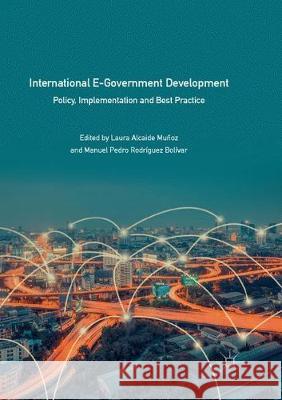International E-Government Development: Policy, Implementation and Best Practice » książka
topmenu
International E-Government Development: Policy, Implementation and Best Practice
ISBN-13: 9783319875170 / Angielski / Miękka / 2018 / 320 str.
Kategorie BISAC:
Wydawca:
Palgrave MacMillan
Język:
Angielski
ISBN-13:
9783319875170
Rok wydania:
2018
Wydanie:
Softcover Repri
Ilość stron:
320
Waga:
0.36 kg
Wymiary:
20.83 x 14.48 x 1.52
Oprawa:
Miękka
Wolumenów:
01











